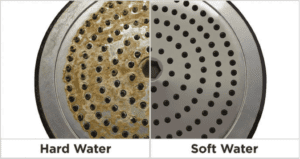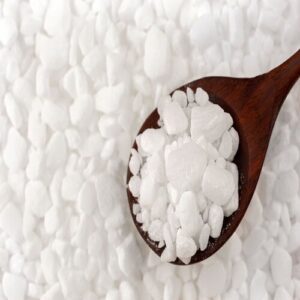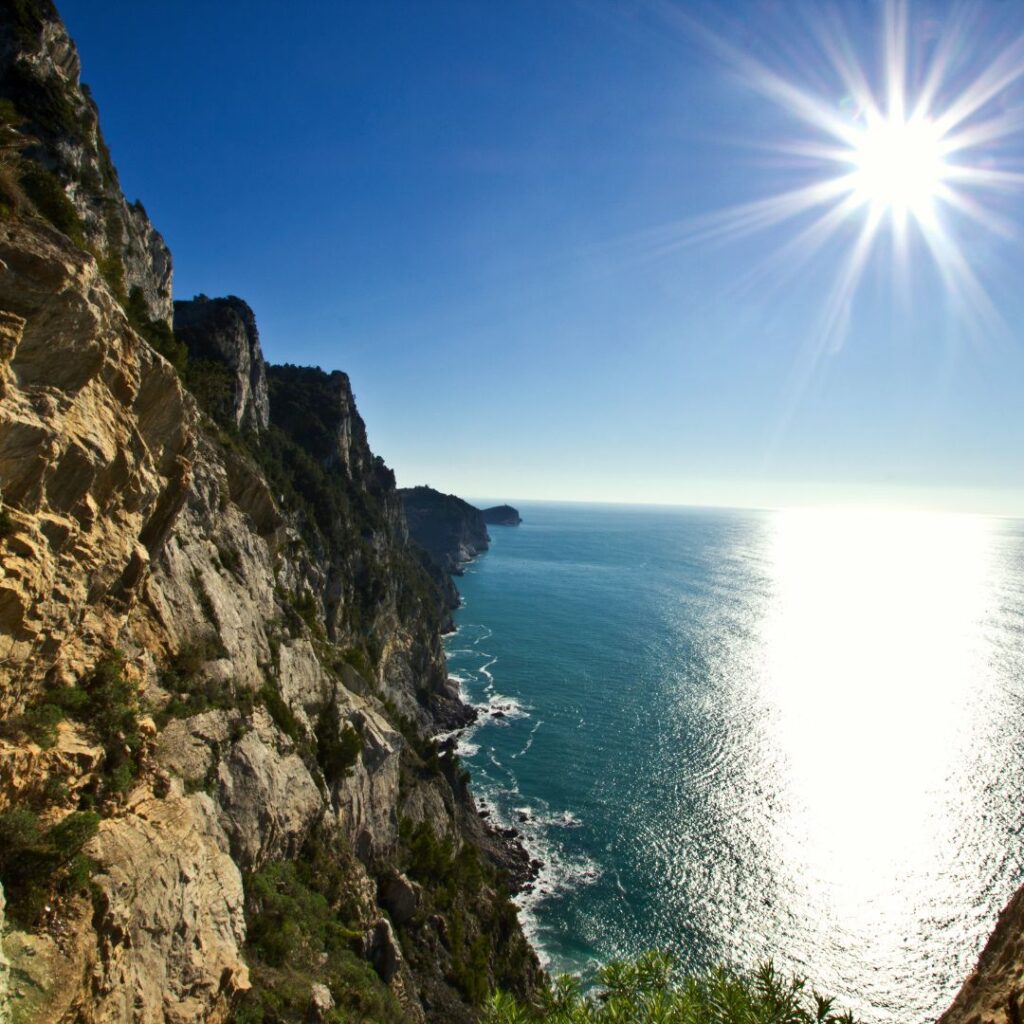Signs That You Need a Water Softener
 If your pipes are corroding and you have soap scum and lime scale all over your tub and shower, it may be time to take a look at water softener systems. Water softener systems can be used to eliminate the calcium, magnesium and other trace minerals found in hard water. If you don’t have any problem with lime scale and rust stains, odds are you aren’t dealing with hard water and won’t need a water softener system to improve your water quality.
If your pipes are corroding and you have soap scum and lime scale all over your tub and shower, it may be time to take a look at water softener systems. Water softener systems can be used to eliminate the calcium, magnesium and other trace minerals found in hard water. If you don’t have any problem with lime scale and rust stains, odds are you aren’t dealing with hard water and won’t need a water softener system to improve your water quality.
Having hard water can actually clog your pipes by depositing minerals over time. It can be difficult to clean off appliances and dishes as the minerals in hard water are not easy to dissolve. Hard water can also interact with soap, making it more difficult to get a good lather when bathing.
These problems can easily be avoided by installing a water softening system in your home. Water softeners are extremely effective at removing calcium and magnesium from your water supply. They remove the minerals by replacing them with sodium ions in the resin exchanger. The resin has the ability to bond to calcium and magnesium while releasing sodium back into the water. This will result in higher levels of sodium in your drinking water, so if salt intake is a concern for you, you may want to run a faucet from a water source that hasn’t been softened.
Understanding Water Softening
Most water softener systems consist of a large tank which holds the salt that needs to be regularly refilled. The salt is mixed with water to create brine that’s used to regenerate the resin that’s used to remove the calcium and magnesium. The resin is flushed with the brine, usually once a day, to help recharge it with sodium ions that can take the place of the calcium and magnesium ions in your water.
Common Water Softener Problems
As detailed in our blog post, common water softener problems can leave your water untreated, allowing calcium and magnesium to run rampant in your plumbing. This can lead to lime scale, rust stains and even corrosion and build ups in your pipes that can eventually clog them completely. Most common water softener problems are caused by a lack of preventative maintenance and neglect.
“Water softeners are easy to take for granted as 99% of the time they work like they are supposed to.”
Preventative maintenance can eliminate many of the most common problems with water softeners before they ever happen. Water softeners can be expensive to repair and replace. Following the instructions for maintenance included with your water softener can help you avoid the biggest pitfalls associated with owning a water softener.
Power Supply and Motor Issues
If the motor is not running on your water softener, you will need to check the depot. Checking the wires where they connect the main power distribution unit as well as the receptacle where the water softener is plugged in can help to eliminate the possibility of a power failure.
 If the power is fine and the motor is running, yet the water is not being softened, or softened enough, you might just need to add some salt. Flushing the tank and adding salt is the first step to take if your water isn’t being softened. You can also try to adjust the timer which controls how often the resin exchanger is being regenerated. The salt water brine in the main tank is used to recharge the resin exchange with sodium ions that are exchange for trace minerals such as calcium and magnesium.
If the power is fine and the motor is running, yet the water is not being softened, or softened enough, you might just need to add some salt. Flushing the tank and adding salt is the first step to take if your water isn’t being softened. You can also try to adjust the timer which controls how often the resin exchanger is being regenerated. The salt water brine in the main tank is used to recharge the resin exchange with sodium ions that are exchange for trace minerals such as calcium and magnesium.
Checking the Brine Line
If your tank is full of salt, you will want to next check your brine line. You should also check and replace the filter screen and injector that control the flow of brine. Make sure the brine line is intact and unobstructed. You can also adjust the pressure setting of the brine line, which is described in the owner’s manual.
Electronic Water Softener
Using an electronic water softener is a relatively new thing. Electronic water softeners are a fairly new technology that’s becoming a popular alternative to salt/resin based water softeners. They work by sending an electronic signal through your water to help neutralize some of the calcium and magnesium ions that cause lime scale and rust stains.
Traditional water softening uses sodium ions (salt) in exchange for the calcium and magnesium ions in the water. This is facilitated through a special resin that’s able to absorb the magnesium and calcium ions and in exchange for mostly harmless sodium ions.
“Electronic water softeners function by inducing electromagnetic fields with a constantly changing frequency.”
This makes the calcium and magnesium effectively crystallize in the water, causing it to be permanently suspended. This prevents the minerals from leaving deposits in your toilet, sink and shower.
This not only prevents mineral build up in your pipes, but can also reverse build up which has already occurred. The treated water becomes able to absorb additional minerals, which eventually helps to flush any previous deposits from your pipes as the lime scale and calcium build ups slowly dissolve. It can also help prevent any mineral deposits outside your pipes such as around faucets and in your toilet bowl.
An electronic water softener will keep your water “harder” than a traditional water softener would. As the salt-based water softener removes the excess mineral content in the water, like calcium and magnesium, thus lowering the hardness and creating a softer water. Your skin and hair will have that silky feel after a shower. This makes the traditional salt based water softeners a better choice. Visit our best selling page for the most popular water softeners among our customers.
Comparing Water Quality Across Cyprus: The Importance of Water Softening Systems

In the beautiful island nation of Cyprus, we’re fortunate to have access to an abundant water supply. However, water quality varies from region to region due to differences in source, treatment methods, and local geography. This article aims to provide an overview of the water quality in different parts of Cyprus and the role of water softening systems in improving it.
- Nicosia:
The capital city, Nicosia, primarily sources its water from underground aquifers and the Southern Conveyor Project, which brings water from other parts of the island. Additionally, desalinated water from coastal plants supplements the city’s water supply. While the water is generally safe for consumption, it tends to have a high concentration of hard minerals like calcium and magnesium. Using a water softening system here could notably improve the lifespan of household appliances and the texture of laundry.
- Limassol:
In contrast, Limassol, with its proximity to the coast, has a different water profile. The water here tends to be softer due to the influence of desalinated water from coastal plants. Given these conditions, a water softening system would be beneficial, but not as necessary as in areas with harder water. However, the system could still provide a range of benefits like improving the taste of tap water and reducing limescale build-up.
- Paphos:
Water quality in Paphos is characterized by its variable hardness levels due to the diverse sources, which include groundwater, desalinated water, and surface water. Residents have often noticed fluctuating water hardness. A quality water softener in this region can help ensure consistent water quality, protect plumbing, and enhance the taste of the water.
- Larnaca:
In Larnaca, the water has been known to contain higher levels of salt due to the use of desalinated sea water. The benefits of installing a water softener in this region include reducing sodium levels, which could make the water taste better and be gentler on skin and hair.
- Ayia Napa:
The picturesque town of Ayia Napa, known for its clear blue waters, also faces water quality issues such as varying hardness levels due to mixed water sources. The usage of water softeners can provide a consistent water quality, preserve the longevity of household appliances, and ensure softer skin and hair after bathing.
- Protaras:
In the resort town of Protaras, the water primarily comes from a mix of groundwater sources and desalinated sea water. This often results in moderate water hardness, with potential spikes during the high-demand summer season due to increased reliance on groundwater. A water softening system in Protaras can provide more consistent water quality, reduce the risk of limescale buildup in appliances, and improve the overall water experience for residents and tourists alike.
- Paralmni:
Paralimni, being close to both Ayia Napa and Protaras, shares similar water characteristics. The water comes mainly from desalinated sea water and underground sources. Residents have noted occasional shifts in taste and hardness, likely due to changing proportions of water sources. Using a water softener in this area can ensure steady water quality, reduce potential mineral build-up in pipes and appliances, and provide softer water for daily usage.
As with any location, a professional water test is the best way to understand the unique characteristics of your local water supply and to determine the best water softening system for your needs.
Conclusion:
Water is a precious resource, and its quality impacts our health and the efficiency of our household appliances. While Cyprus enjoys a reliable water supply, the quality varies significantly from region to region. Investing in a water softening system can help tackle these regional disparities, protecting your appliances, and providing your family with softened water for their everyday needs.
Remember, water softeners are not a luxury but an investment in your home and health. For more information on the best water softeners in Cyprus, visit our product catalog.
You can find more information: on Wikipedia.
- How do you use SodaStream Duo – Step by Step Guide? - February 6, 2024
- Why Choose Tankless Systems? Discover the Best Tankless Reverse Osmosis Systems in Cyprus - December 18, 2023
- Comparison of Chlorine vs Chlorine Dioxide: Which is the Superior Sanitizer? - June 25, 2023
